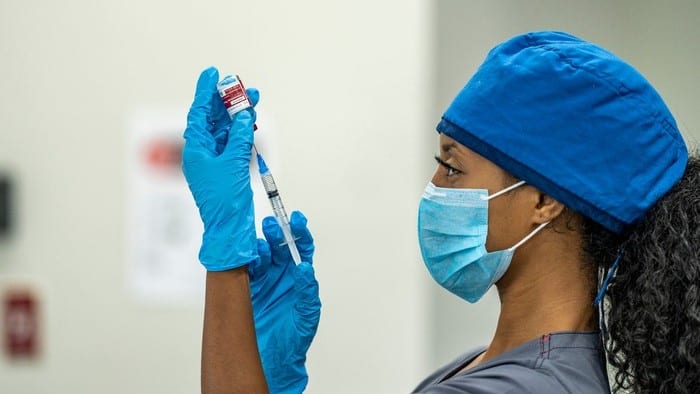This article was originally published on Fool.com. All figures quoted in US dollars unless otherwise stated.
Investors absolutely, positively hate delays. But a delay is exactly what Novavax (NASDAQ: NVAX) gave them in its first-quarter update earlier this month.
Novavax originally expected to file for Emergency Use Authorization (EUA) for its COVID-19 vaccine candidate NVX-CoV2373 in the second quarter of 2021. However, it now anticipates EUA filings in the U.K., U.S., and European Union in the third quarter.
The biotech stock sank nearly 25% on the news. While Novavax's shares have bounced back somewhat, they're still not at their previous levels prior to the Q1 update. It's way too early to count Novavax out, though. Here's the top reason that the company could still be a huge winner in the COVID-19 vaccine market.
Doubling down
Novavax didn't just report its first-quarter results on May 10. The company also announced positive data from a preclinical study evaluating a combination of NVX-CoV2373 with its experimental influenza vaccine NanoFlu.
In this preclinical study, ferrets and hamsters were given the NanoFlu/NVX-CoV2373 combo. Researchers observed influenza and COVID-19 antibody levels that were elevated two weeks after a single dose of the combo vaccine. These levels rose two weeks after a second shot.
It was a similar story with the hamsters that received the combo vaccine. The animals had elevated levels of COVID-19 antibodies that were comparable to those observed in other animals receiving the NVX-CoV2373 vaccine alone. The hamsters also had influenza antibody levels comparable to other hamsters receiving NanoFlu alone.
Some hamsters were also directly challenged with the novel coronavirus that causes COVID-19. The animals that received the NanoFlu/NVX-CoV2373 combo vaccine retained their body weight similar to both non-infected animals and those given NVX-CoV2373 alone. Researchers found little or no virus in the upper and lower respiratory tracts of the animals four days after being challenged.
A post-pandemic possibility
Sure, these results were only from a preclinical study. However, there's a good reason to be optimistic that the combination of the two vaccines could be effective at immunizing against both flu and COVID-19.
It's quite possible, if not probable, that annual vaccinations will be required for COVID-19. This likelihood is even greater with the emergence of multiple coronavirus variants. The scenario could be similar to what we already have with flu vaccines, which are recommended annually.
From a pragmatic viewpoint, combining flu and COVID-19 vaccines could be just the ticket for increasing vaccination rates. In the 2019-2020 flu season, 48% of American adults were vaccinated. That figure rose to 55% in the 2020-2021 flu season. However, that's still a relatively low number. Americans would probably be even less likely to be vaccinated if they were asked to receive two different shots.
A combo flu/COVID-19 vaccine would be an answer to healthcare experts' prayers. And Novavax could be in a good position to provide such a vaccine, one that's both safe and effective -- potentially even more effective than current flu vaccines.
Most likely to succeed?
Moderna announced plans to explore a combination flu/COVID-19 vaccine. Small biotech Vaxess Technologies partnered with Taiwan-based drugmaker Medigen Vaccine Biologics to develop a combined flu/COVID-19 vaccine that's delivered via a patch.
Pfizer is working with partner BioNTech to develop a messenger RNA (mRNA) flu vaccine. It wouldn't be surprising if the companies also look to combine their COVID-19 vaccine with their flu vaccine candidate.
Still, at this point, there's a pretty good argument to be made that Novavax is the most likely to succeed in the race to develop a combo flu/COVID-19 vaccine. Both NanoFlu and NVX-CoV2373 have fared well in late-stage testing. None of the other contenders has promising flu and COVID-19 vaccines as far along in the clinical process as Novavax.
Novavax plans to advance its NanoFlu/NVX-CoV2373 combo vaccine into clinical testing later this year. If the testing goes as well as the efforts with the individual vaccines have, the biotech could be on its way to becoming a huge long-term winner.
This article was originally published on Fool.com. All figures quoted in US dollars unless otherwise stated.









